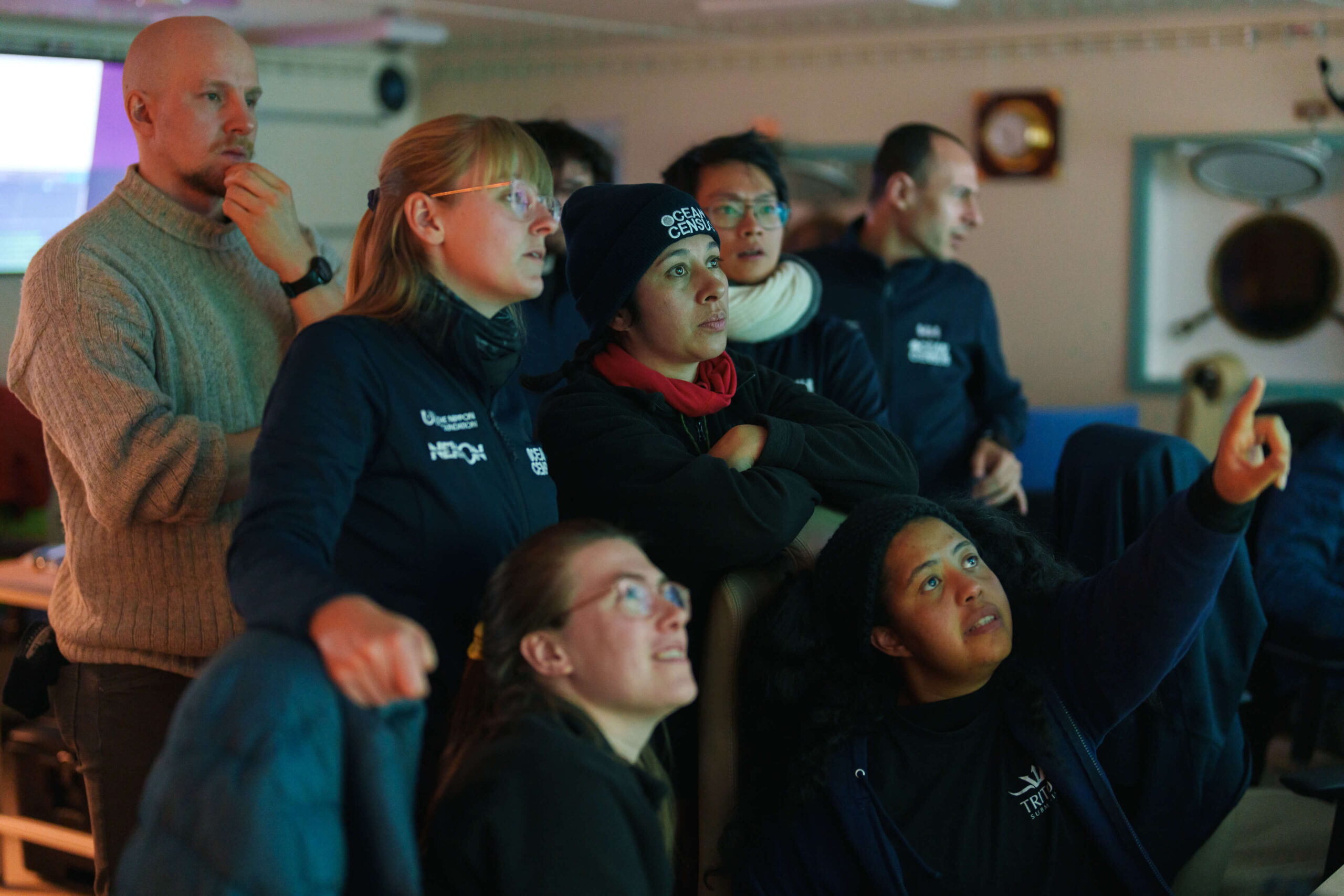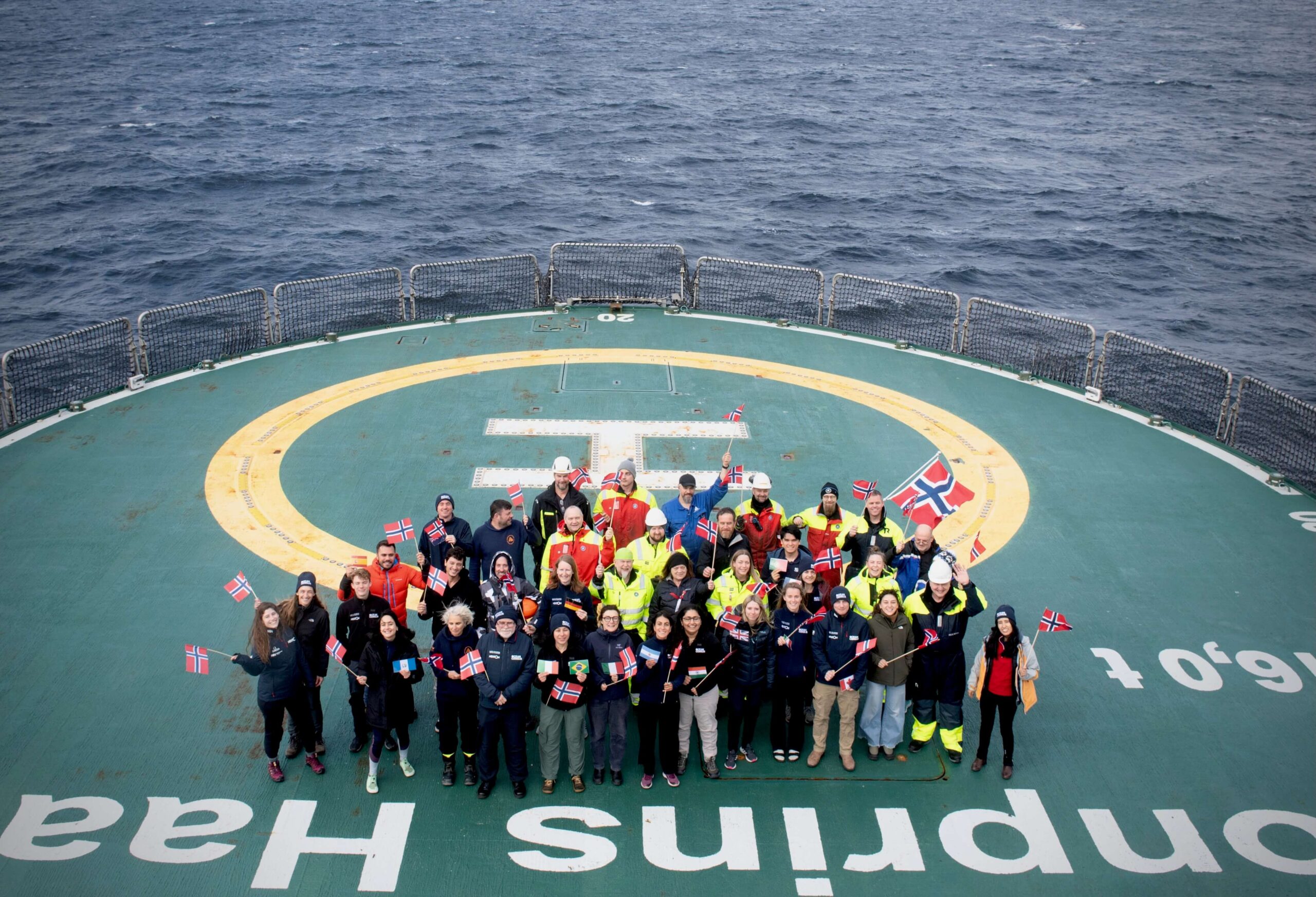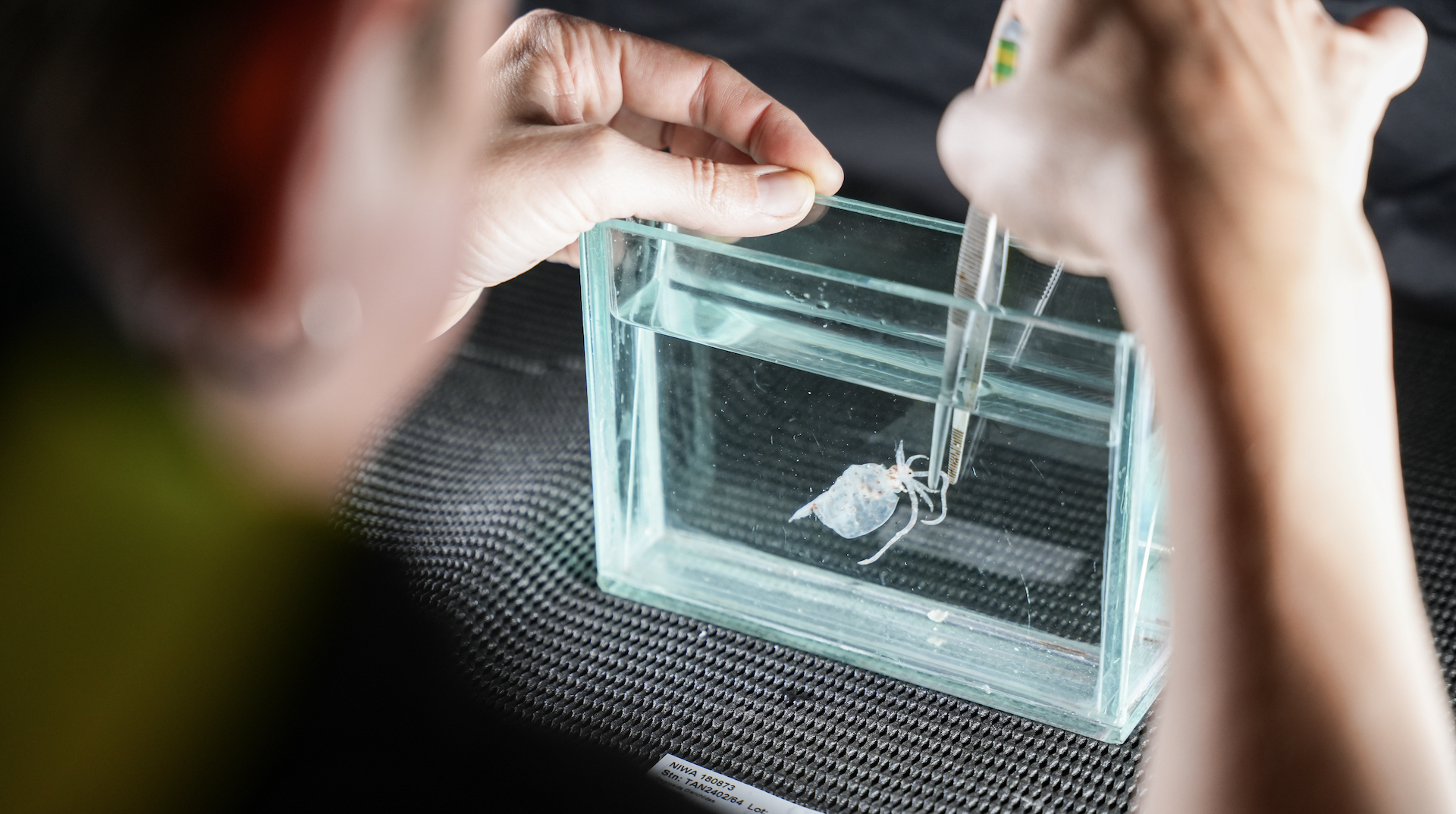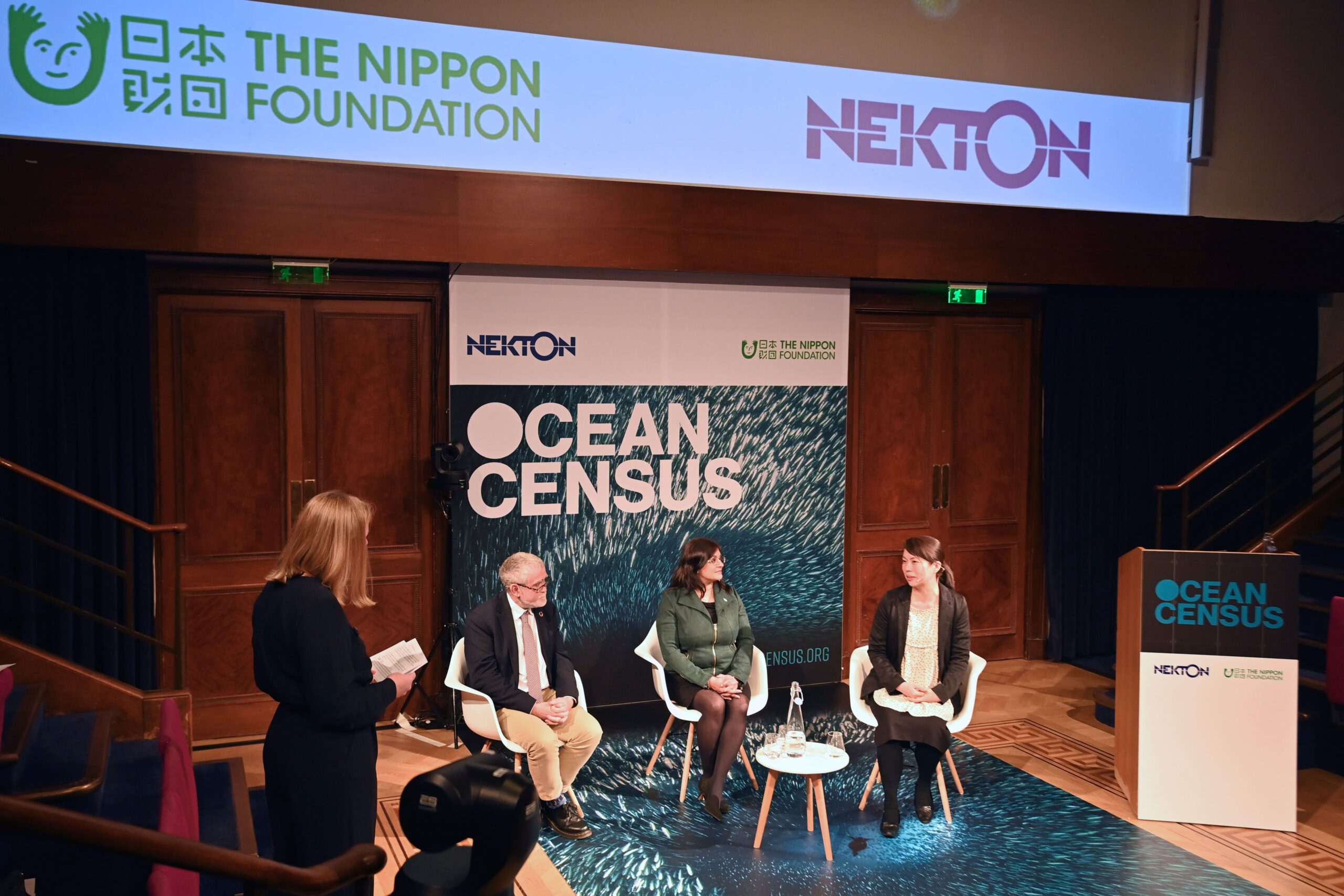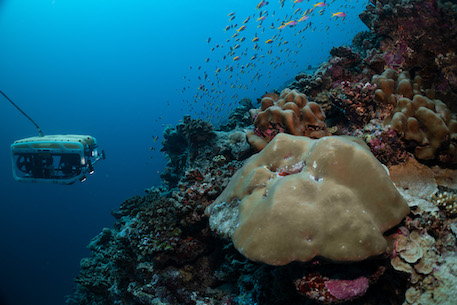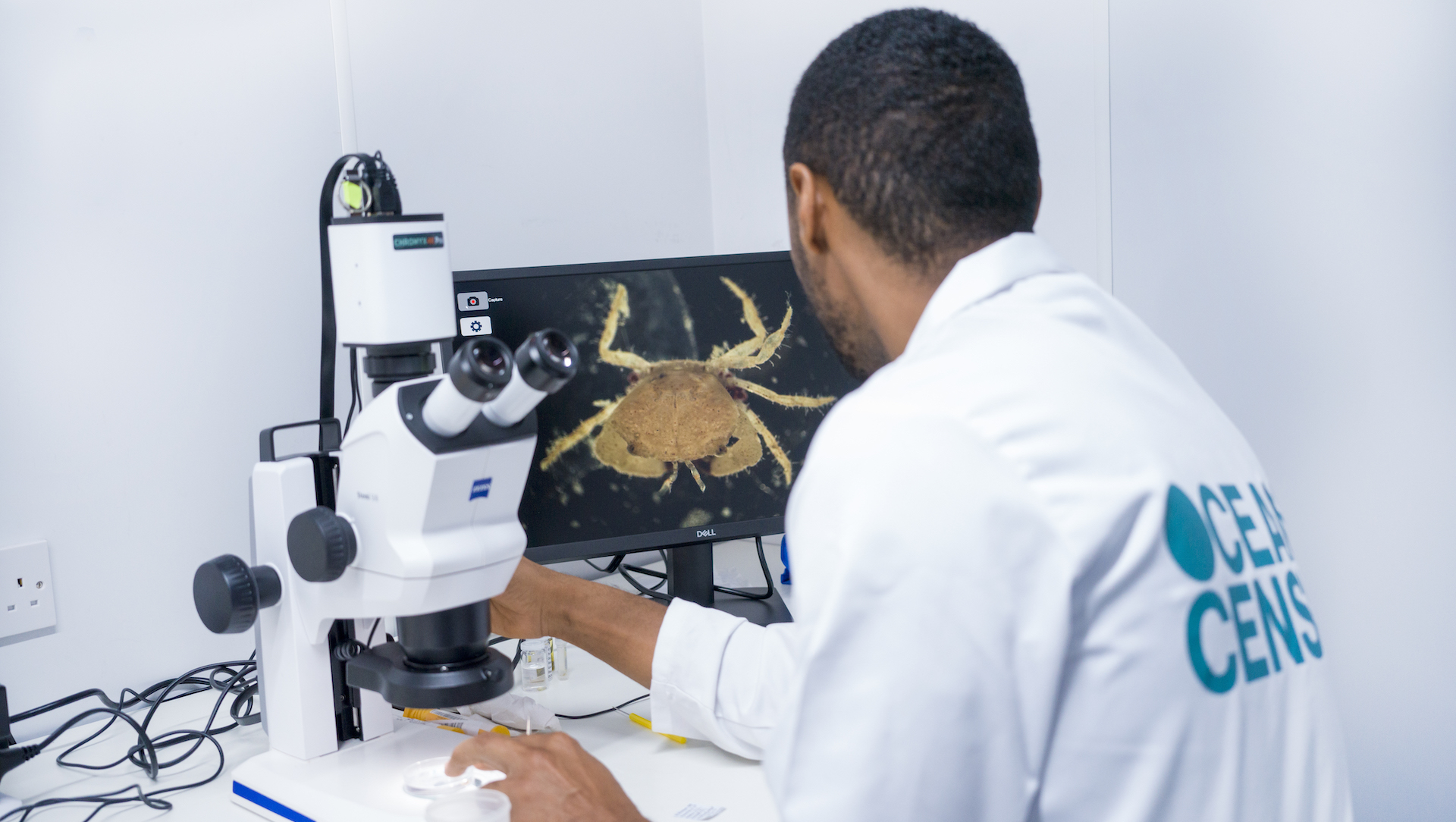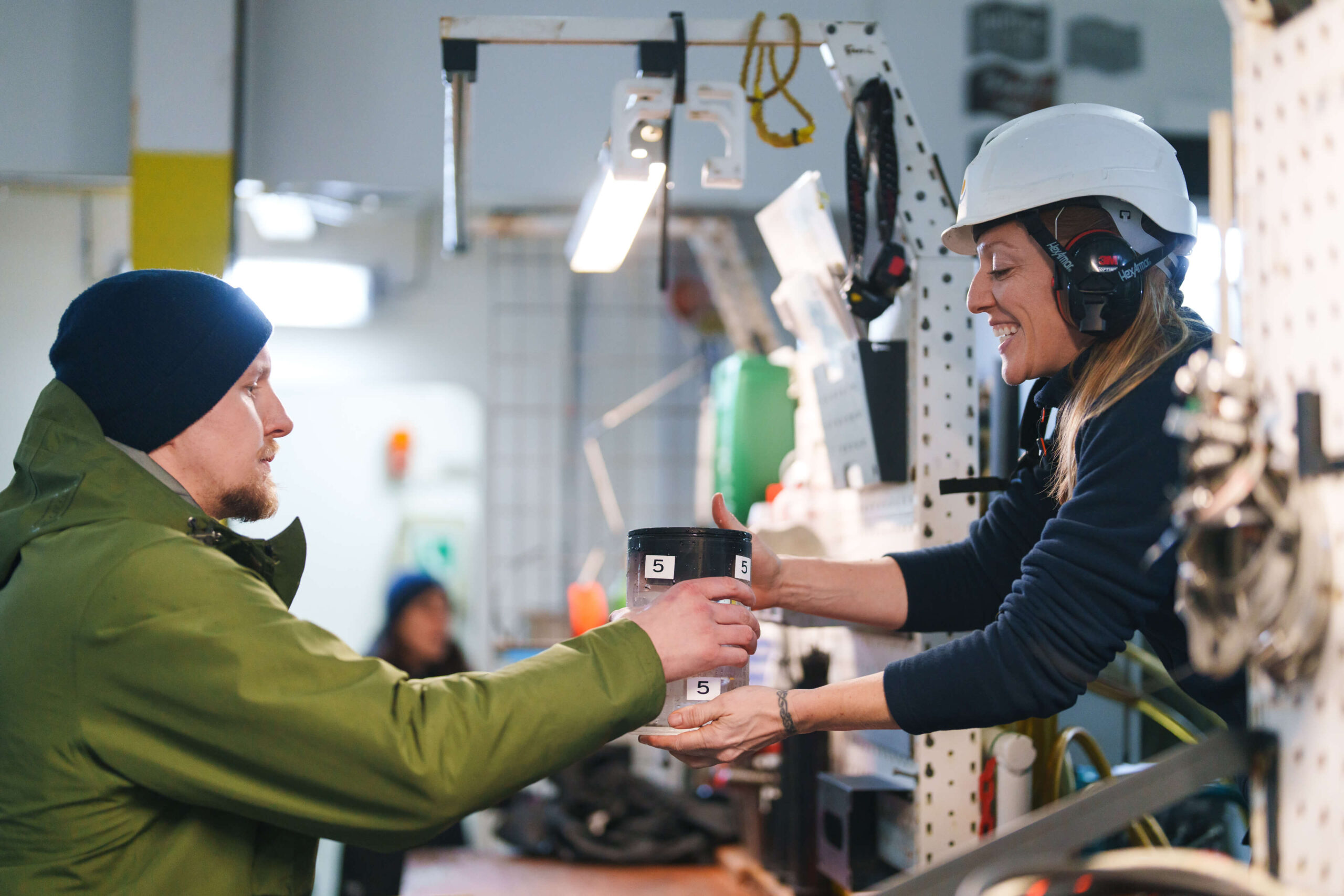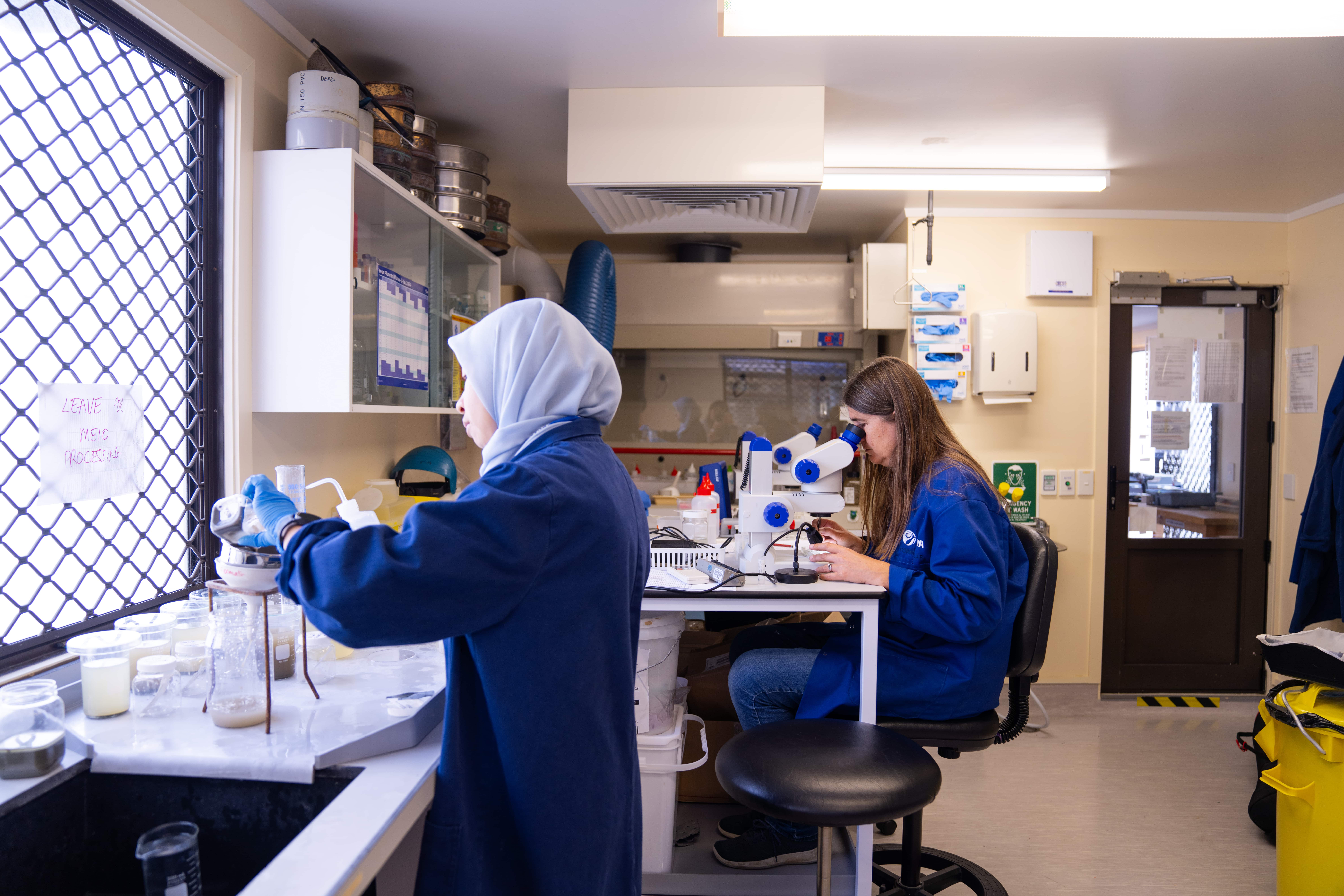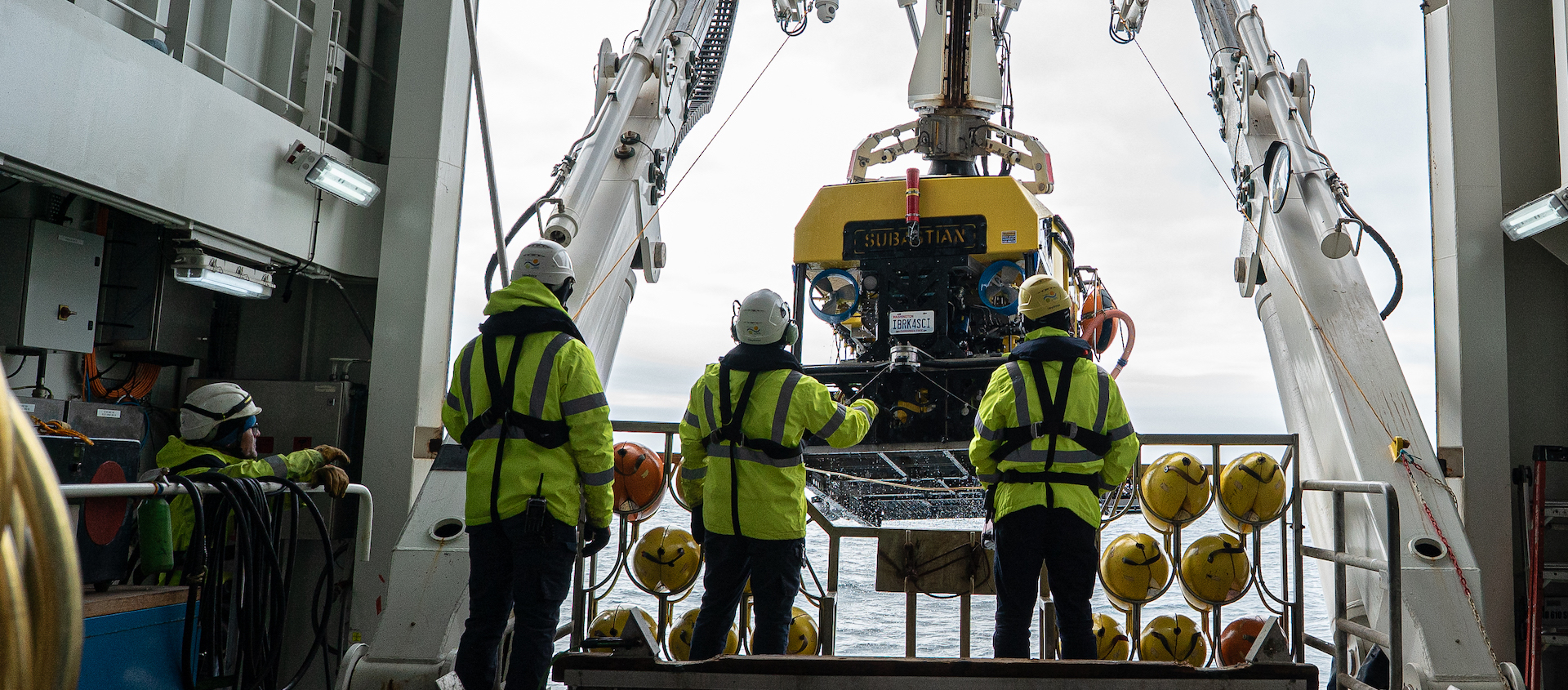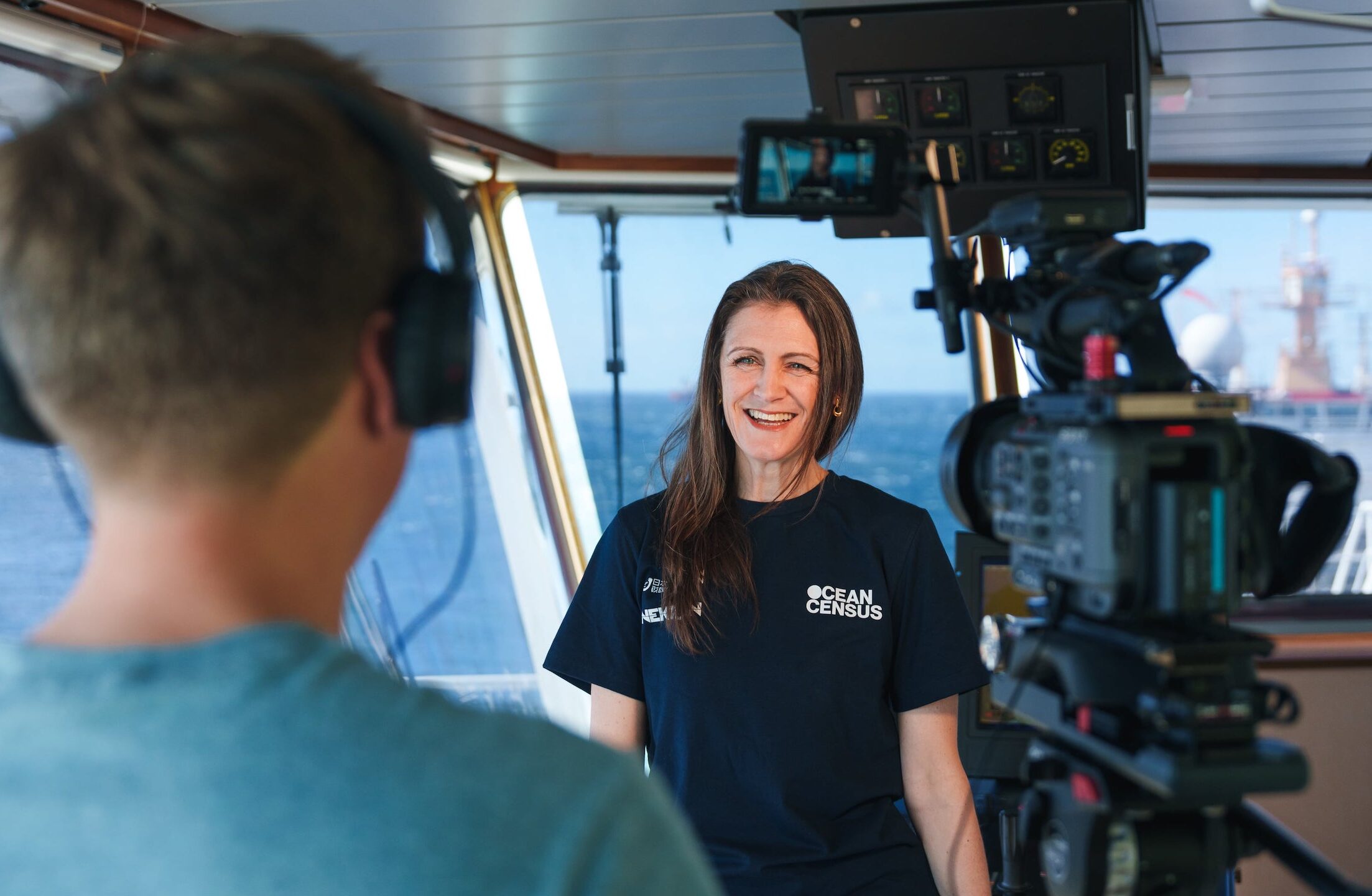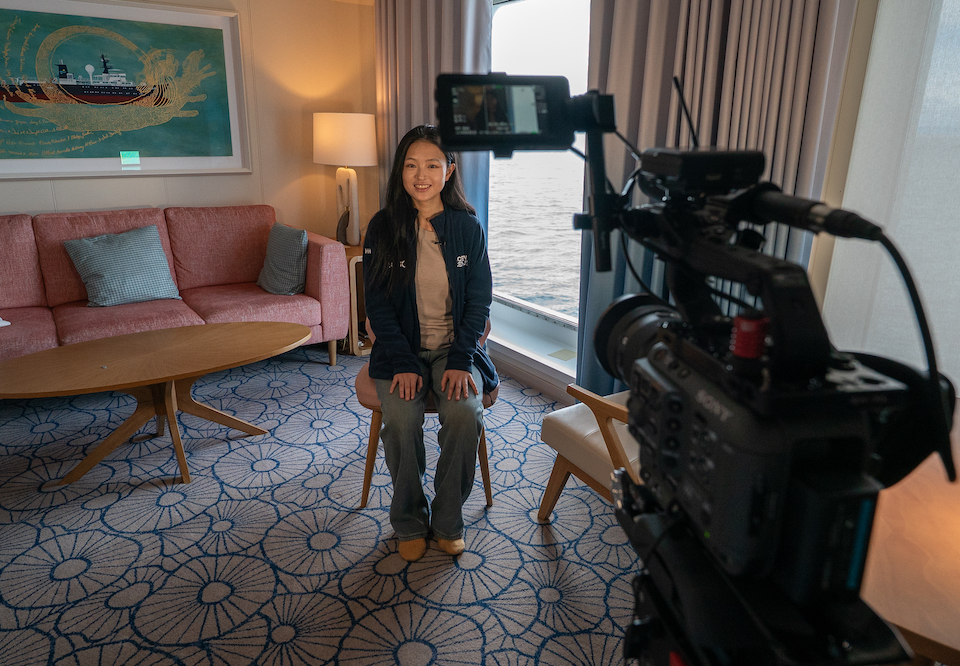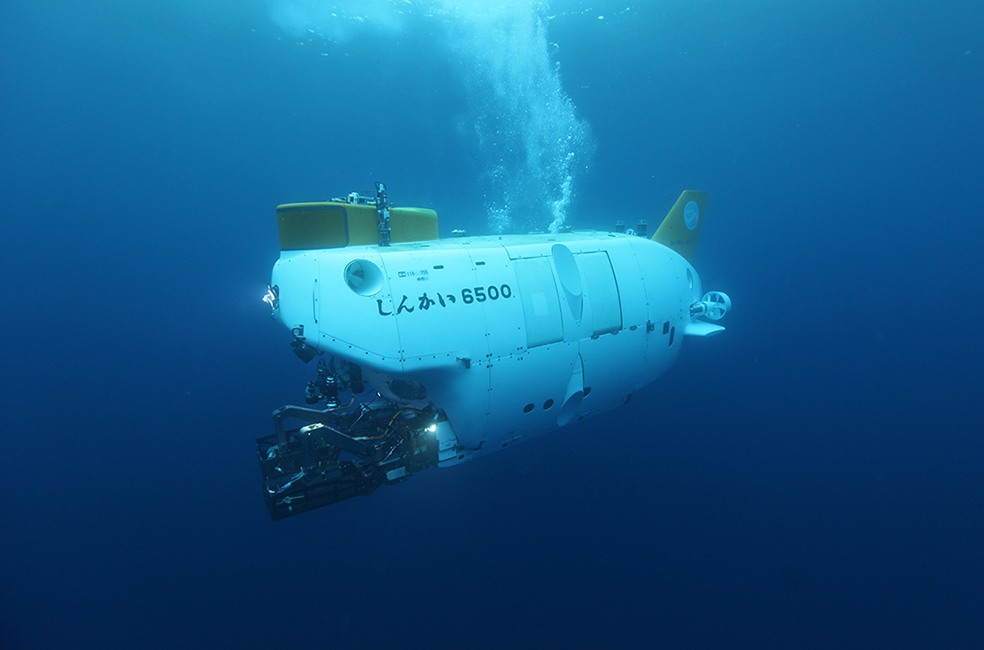

Barents Sea
ARCTIC OCEAN
Barents Sea was the first expedition that Ocean Census participated in, led by the University of Tromsø – The Arctic University of Norway, in collaboration with REV Ocean. The expedition took place in and around the deep and cold waters of the Arctic.

Mission Guide
The expedition was part of the AKMA project, hosting researchers from different institutions. Ocean Census taxonomists participated to discover the life living on the seafloor including around methane-rich, cold seeps, at depths of 100 to 500 metre depths.
The Barents Sea was selected as expedition location for its abundance of cold seeps, which form unique habitats supporting biodiverse chemosynthetic ecosystems adapted to these environments. The Expedition’s mothership was the Norwegian icebreaker RV Kronprins Haakon.
Mission facts
Dates
29 April – 10 May 2023
Duration
11 days
Location
Barents Sea, Arctic
Type
Partner
Image credits
Ocean Census

Mission brief
Mission to Discover
Soft Corals: The deep and cold waters of the Arctic host a high diversity of corals. Soft corals are one of the three main groups of corals found in the world, and do not possess a stony skeleton like hard corals. Instead, they have a variety of shapes, including fan-like, whip-like or feather-like.
Glass Sponges: Glass sponges (Hexactellinida) are animals commonly found in the deep ocean living on hard surfaces. Their skeleton is composed of silica spicules, which may fuse together in intricate structures.
Crustaceans: Crustacean is a collective term for a diverse group of animals with hard external skeletons (‘exoskeletons’), and include species as crabs and lobster. Crustacean groups likely to be encountered around cold seeps include decapods (crabs, squat lobster, shrimp), amphipods and isopods.
Mission Objectives
Combining multi-disciplinary research, species discovery, knowledge exchange and public engagement.
Science: To investigate the effects changing ocean conditions have on the physical, biological, and chemical characteristics of extreme environments (methane and oil seepage sites).
Species Discovery: Sample the diversity and distribution of deep-sea benthic communities, particularly those found within coral and sponge habitats, fish habitats, and other vulnerable marine habitats with high conservation value.
Knowledge Exchange:Providing training for the next generation of experts in Arctic marine sciences and greenhouse gas phenomena.
Education: Hosting university and Erasmus students from institutions around the world, including Norway, France, Singapore, Ukraine, Greece, USA and Italy.
Public Engagement: Facilitating access to knowledge and information including via live events for students globally and via social media.
Mission Partners



News
Join the census
An Alliance of scientists, governments, marine research institutes, museums, philanthropy, technology, media and civil society partners.
